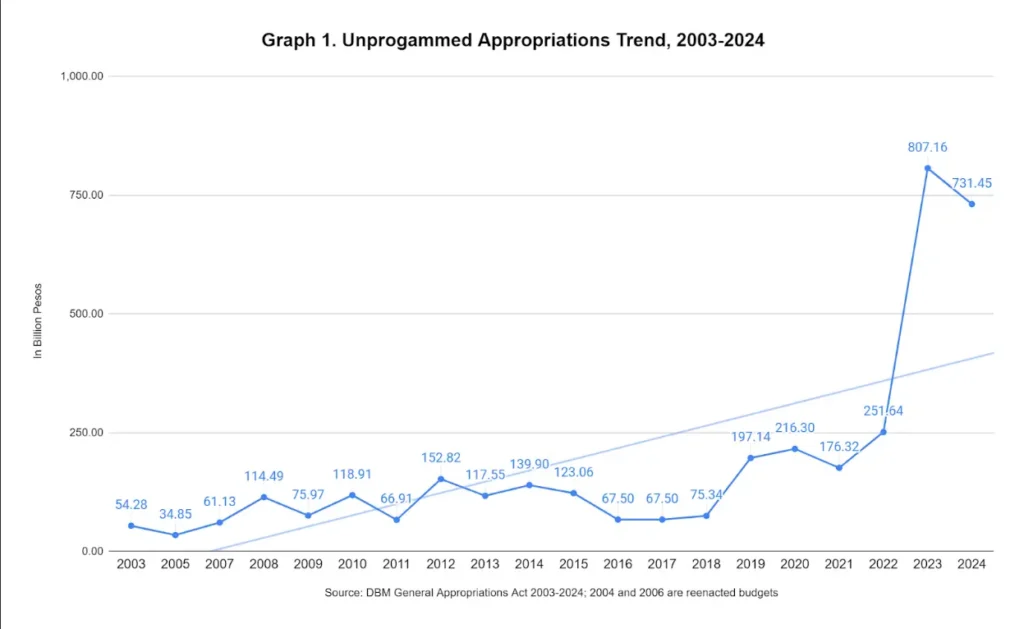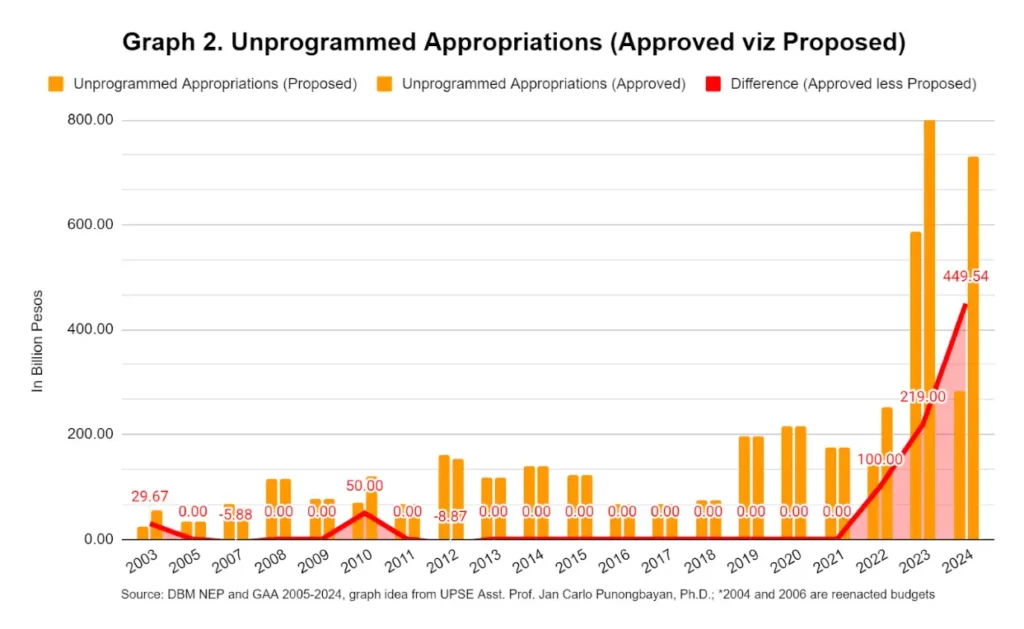Budget watchdog Social Watch Philippines (SWP) calls for open bicameral budget deliberations amid questionable fund transfers to unprogrammed appropriations (UAs). UAs are standby budgets that may be released upon the availability of additional funding sources, such as loan proceeds, revenue collections exceeding government targets, or new revenue collections not included in the President’s original proposal. In 2024, sources of financing for UAs include fund balances from Government-Owned and Controlled Corporations (GOCCs).
Meetings of the Bicameral Conference Committee on the national budget, composed of delegates from the House of Representatives and the Senate (commonly referred to as the Bicam), are typically held in closed-door sessions, away from public scrutiny and without publicly available official recordings.
The lack of transparency and accountability has allowed Congress to abuse its “Power of the Purse” for years, creating a breeding ground for corrupt and unfair practices.

“Shrouded in secrecy, the Bicam body has persistently made ‘insertions’ that include massive budget reallocations, ‘double and overlapping’ appropriations, and new budget items. These actions are conducted off the record and without a paper trail. The Bicam report does not offer any justification for the amendments and revisions made by legislators. This practice must stop.
SWP Co-Convenor Dr. Ma. Victoria Raquiza
SWP highlighted the alarming trend of budget transfers to the UA, starting with the 2022 national budget. Citing the Department of Budget and Management (DBM), SWP noted that the budget allocation for UAs averaged ₱87 billion from 2003 to 2018. However, the UA budget began to swell between 2019 and 2021, averaging nearly ₱200 billion annually (see Graph 1). It is important to note that these were the years when COVID-19 expenditures were significant.
However, SWP monitored a dramatic surge in unprogrammed appropriations for 2022, 2023, and 2024. The Executive’s proposed UAs were substantially increased by the legislators: slightly higher in 2022, it rose by ₱100 billion, then doubled to ₱219 billion in 2023, and once again doubled to ₱449.541 billion by 2024 (see Graph 2). In comparison, an increase of “only” ₱50 billion was incurred for Support to Calamity-Related Programs and Projects in 2010.
SWP asserts that this violates the Constitutional provision prohibiting increases in appropriations beyond the amount proposed by the President to Congress, as indicated in Article VI, Section 25(1) of the 1987 Constitution.

“The closed-door budget Bicam sessions are a breeding ground for corruption. Instead of focusing on those who need help the most, these secret meetings funnel money into pet infrastructure projects and unplanned flagship programs, often at the expense of public service. Our legislators are failing us by hiding how our money—our public funds—are being spent.
Jessica Reyes Cantos, Co-Convenor of SWP
SWP calls for opening up the bicameral conference proceedings on the national budget to the public, allowing civil society organizations (CSOs), the media, and other stakeholders to attend all meetings. To further promote transparency and accountability in how public funds are used, SWP calls for live streaming these sessions on the official social media pages of both the House and the Senate. SWP has officially submitted these recommendations to Congress as part of its proposed provisions in the People’s Participation in the Budget Process Bill and the Budget Modernization Bill, both of which are currently pending in Congress.
